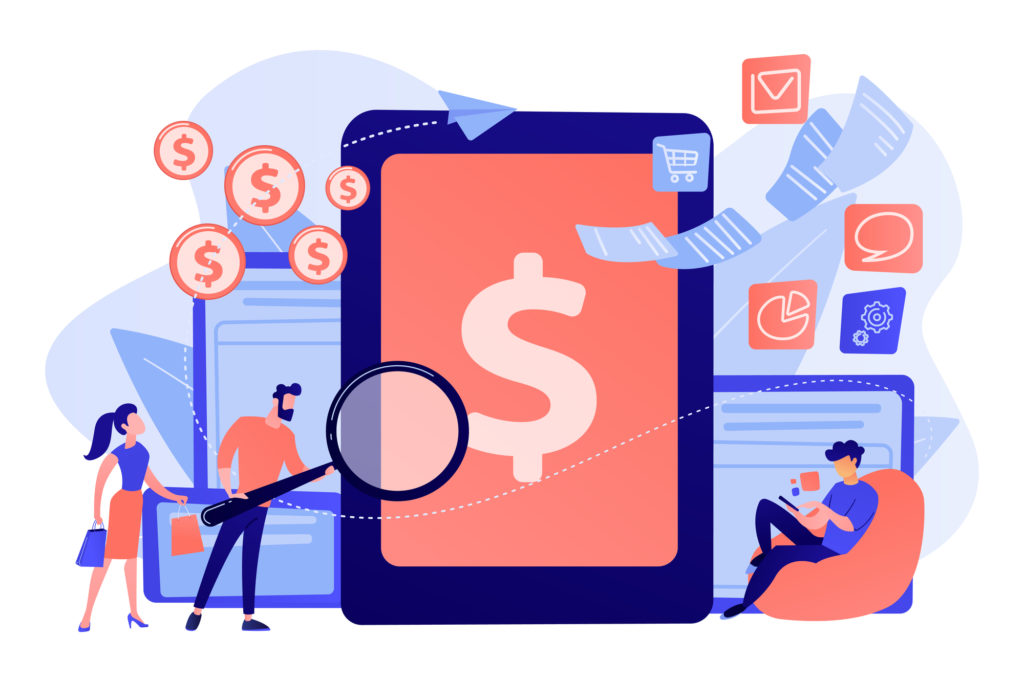 As recession creeps up, it’s likely that money owed to you may become harder to collect. Perhaps it’s outstanding receivables. Maybe you’ve loaned money to an employee, a vendor you’ve known for years, or a business associate. What can you do?
As recession creeps up, it’s likely that money owed to you may become harder to collect. Perhaps it’s outstanding receivables. Maybe you’ve loaned money to an employee, a vendor you’ve known for years, or a business associate. What can you do?
Collections policies
Today, with electronic payment options and Square attached to a phone for swiping and tapping, it’s easy to get paid for your goods and services on the spot. But for some businesses and in some industries, invoicing and waiting to get paid remains the norm. What can you do to ensure your outstanding invoices don’t stand out too long?
- In-house efforts. Send a notice when the period for payment (net 10 days; net 30 days) is about to be up. If you don’t receive payment within a week, follow up with a personal phone call. As I always said: invoices aren’t fine wine; they don’t get better with age. Don’t let unpaid invoices languish. The customer may be experiencing financial difficulties, and working out a payment plan can ensure you’ll receive what you’re owed, albeit later than you wanted.
- Sue in small claims court. Check local law to determine whether you can bring a claim in a local court. Each locality has its own rules, including limits on claims and whether corporations can sue. NOLO has a state-by-state listing of these rules. Usually you don’t need an attorney (in some locations you can’t use one), so the cost for proceeding in this way is minimal—a modest court filing fee and your time.
- Attorneys. If you don’t want to go to small claims court, an attorney can send a collection letter to your delinquent customer. The letter simply requests immediate payment, with the caution that further legal action will be taken if payment is not received. When I was practicing law, this course of action usually had favorable results (some customers are habitually late payers, and a lawyer’s letter is a good reminder to settle up). The cost for this option is the attorney’s fee, which should be modest (attorneys typically have templates for collection letters).
- Collection agencies. A collection agency can try to recoup what you’re owed, but recognize you’ll never collect the full amount. Why? You have to share what’s collected with the agency, which can be between 25% and 40% (e.g., if the agency recovers 75% of an outstanding bill of $1,200, or $900, and the agency’s fee is one-third, then you receive $600 of the $1,200 owed to you, which is the $900 recovery minus the agency’s fee of $300). But today reputable agencies are fairly successful because consumers don’t want their credit rating hurt by nonpayment. Before engaging a particular agency, check local reviews as well as the rating with the Better Business Bureau.
Other consequences of delayed or delinquent payments
What to do about delinquent invoices requires you to take action. But also recognize that late and non-payments have other consequences.
Your cash flow
Sales are one thing; it makes it look like your sales numbers are great. But getting paid for what you sell is quite another, and the failure to get paid on time or not at all impacts your cash flow. In the Great Recession, there was a domino effect from unpaid invoices—one company wasn’t paid so it delayed payment to another, which in turn delayed payment to yet another company, and so on.
Your taxes
Whether you can take a tax write-off for an unpaid amount depends on your method of accounting and what type of payment was owed to you.
- Payment for work performed. If you are on the cash basis (as most small businesses are), you can’t deduct your uncollected fee. This is so no matter how much time you invested in the work. A business that uses the accrual method generally can deduct an unpaid amount.
- Payments for goods sold. If you are on the accrual method, you’ve already reported the income; nonpayment lets you deduct the outstanding receivable as an offset to reach zero income from the sale. On the cash method? No deduction for the unpaid invoice can be claimed because no income was reported. However, there’s an adjustment to the cost of goods sold effectively reflecting the loss of the goods (but not the lost profits).
- Interest and principal on a loan. If the business lent money that it couldn’t collect, it may be able to claim a bad debt deduction. If, you the owner, lent money to your business and aren’t repaid, determine whether it’s a business or nonbusiness bad debt. If you’re incorporated and the loan was to product your job, then it’s a business bad debt deductible as an ordinary loss. If it’s to protect your investment, then it’s a nonbusiness bad debt—assuming it’s wholly worthless with no chance of any collection—then it’s treated as a short-term capital loss, regardless of how long the loan was outstanding. For more on deducting bad debts, see IRS Publication 535.
Final thought
Don’t get stiffed; get paid on the spot or at least use progressive billing so you get paid as you go. Nonetheless, if you must send out invoices, then be proactive to see you get paid what you’re owed.


